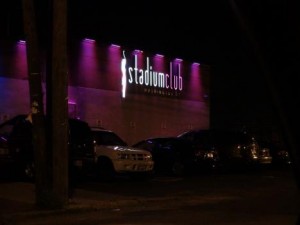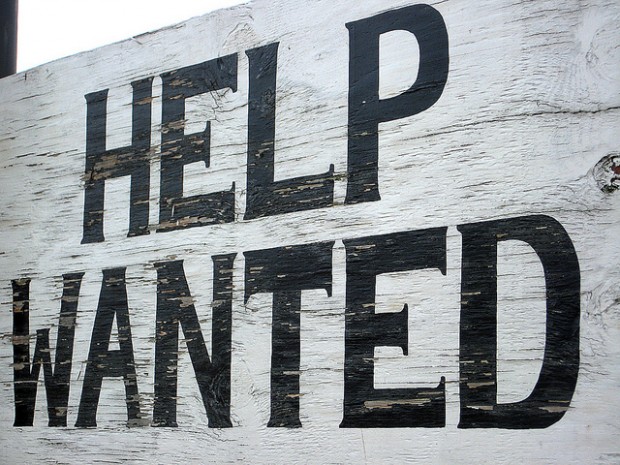September 8, 2011 | 7:01 AM | By Anna
Good morning, DCentric readers! Here’s what we’re reading, right now:
Life Is (Relatively) Sweet In Washington, DC For Members Of All Racial And Ethnic Groups “I think that much as claims about the economic vibrancy of the DC area are rightly tempered by the observations that conditions are much worse for the city’s working class residents than for affluent professionals, claims about the city being “a city divided” need to be tempered by the reality that these divisions exist all over the place.” (Think Progress)
Saul Solorzano touched thousands of lives in D.C.’s Central American community “Among the struggling immigrants who benefited from Carecen’s help over the years, the tearful testimonies at several crowded memorial services last month and the painstakingly penned messages in a condolence book at the Carecen office spoke eloquently of his impact. ‘You will live in the heart of every immigrant,’ one woman wrote in broken Spanish.” (The Washington Post)
Obama: ‘Obviously’ black Americans have ‘suffered more’ “And what I think about every single day is how we can make sure more folks are going to work. And obviously the African-American community has suffered even more. There’s that old saying when American gets a cold, African-Americans get pneumonia. And the jobless rate across the board, and particularly in communities like inner-city Chicago, this has been a devastating blow.” (thegrio.com)
Continue reading →

Courtesy of Armando Trull / WAMU
Cornell Jones is accused of using HIV/AIDS money to renovate Stadium, a D.C. strip club.
The nonprofit leader accused of using D.C. HIV/AIDS funding to renovate a strip club has claimed racial bias is the reason behind the probe. And then he went on to use an anti-gay slur against city leaders.
Cornell Jones, who is black and runs a nonprofit under investigation by the D.C. Attorney General, made the remarks during his WOL-AM 1450 Saturday radio talk show, The Washington Times reports. He said the investigation is the result of racial bias from white city leaders and then described two white and openly gay D.C. Councilmen — David Catania (At-Large) and Jim Graham (Ward 1) – as “a couple of gay guys who sometimes get to acting like little faggots.” Councilman Catania urged the attorney general to launch the probe, and Councilman Graham has been vocal about his outrage over the findings, the Times reports.
Some have taken to Twitter to urge people to file complaints with the Federal Communications Commission over Jones’ use of the slur on air.
Jones, a self-described former drug kingpin, runs the nonprofit Miracle Hands. A lawsuit brought by the D.C. Attorney General alleges Jones’ nonprofit was given about $330,000 in public money intended to renovate a Northeast warehouse into a job training facility for District residents with HIV/AIDS. The suit claims Jones used the funds to build out Stadium, a strip club that shares an address with the Miracle Hands.
September 7, 2011 | 12:04 PM | By Anna
Katherine Phillips, a Professor at Columbia’s business school, examined how race and gender intersect and discovered something interesting. The stereotype of black women being bold or “angry” may work to their benefit, even though in general, dominant women often experience a backlash:.

After determining that black women are given more leeway than white women to be independent and aggressive, Phillips decided to then see how these stereotypes interact with the backlash effect. In a second, follow up study, Phillips and her colleagues had evaluators rate the likeability and hireability of two equally dominant female job candidates who only differed from each other by race (white vs. black). The results of the study showed a clear backlash effect for the dominant white, female candidate – she was less liked and less likely to be hired. The dominant black, female candidate fared much better – she was more liked and more likely to be hired.
— www.stanford.edu

Brenda Gottsabend / Flickr
The unemployment rate in D.C. is higher than the national average, but as Metro Connection’s Sabri Ben-Achour reports, the pain isn’t being felt evenly along racial and class lines. He recently spoke with economist Benjamin Orr of the Brookings Institution about the imbalance and ways to fix it:
“Ward 7 is, based on some calculations I’ve done, at 22 percent unemployment rate, which is actually now higher than the unemployment rate in Ward 8, which is at about 20 percent,” Orr says. “This is practically depression era levels of unemployment.”
In Ward 3, Orr says, unemployment is 4 percent.
“That’s a significant divide,” Orr says. “That’s a completely different reality for those two wards.”
Wards 7 and 8 are majority black with high numbers of low-income residents; Ward 3 is mostly white and wealthy. Orr goes on to say long term solutions to the employment divide include improving education, access to transportation and job training programs. You can listen to the entire segment here.
September 7, 2011 | 8:53 AM | By Anna
Good morning, DCentric readers! Hope you have your umbrella with you– it’s a wet week.
Metro plans to hire contractor to speed up repairs of escalators “Over the years, Metro has alternated between staff and contractors to perform escalator maintenance and repairs. Along the way, it has dumped tens of millions of dollars into its equipment and hired consultants to do studies of whether in-house or contracting out is better, all without finding a lasting solution.” (The Washington Post)
Video shows Metrobus driver throwing off passenger “While the Metrobus driver and passenger are in an argument, you can hear the passenger ask the driver to take him to the next stop — possibly without paying first. When the bus driver asks the man to get off the bus and the man stays, the driver pushes the man, takes the man’s hand off a pole, picks him up and throws him to the ground.” (WTOP)
UIP Relieves Another Crappy Landlord, This Time in Adams Morgan “Back in 2007, owner NWJ Companies sued advisory neighborhood commissioner (and Councilmember Jim Graham’s consituent services guy) Wilson Reynolds for organizing a cleanup at the building, where the mostly Hispanic residents had complained of shoddy conditions.” (Washington City Paper)
Continue reading →
File this under very cool projects — an ultra-energy efficient house designed for the annual Solar Decathlon on the National Mall will end up as a duplex in Deanwood. The passive house was built by students from The New School, Stevens Institute of Technology and the Milano School of International Affairs.
Passive houses, which are 90 percent energy efficient, can require hefty upfront investments — a recently completed passive house is Bethesda is listed at $1.68 million. That’s a large price tag, particularly in Ward 7 where nearly 38 percent of residents make less than $25,000 annually.
“Rather than this being a futuristic house that only the richest or most eccentric can afford… we’re bringing the energy efficiency to real life. This is something people can achieve now,” student Eric Rau says in the video.
The land was donated by the District to Habitat for Humanity, which will place two families in the duplex home.
Tariq West argues that by-and-large, poor black people weren’t forced out of D.C.; rather, they were “coaxed out by the cynical incentives of despair.”
Those of us who lived in DC through its most soul-wrenched hours (whether by choice or chance), own the joy and pain, the culture of this city. I literally ache for Chocolate City sometimes, for the people I came up with, for how this city was let to fall down on top of us. I experience Go-Go as no less than eulogy.
Gentrification is an emotionally charged subject, at least in part, because we feel like we deserve recognition, a float in the parade of the inevitable. We have marked and been marked by this city. We deserve a sticker or t-shirt or exclusive rights to knowing glances, for loving DC when there was much less to love about it.
— tariqwest.tumblr.com

Richard / Flickr
Whole Foods now has four locations in D.C., including the P Street Whole Foods pictured above.
D.C. gets another Whole Foods today. The grocer, viewed by many as one of the most obvious signs of gentrification, has opened the doors at 22nd and I Streets NW in Foggy Bottom.
Foggy Bottom is a far cry from a rapidly changing neighborhood — it’s been decidedly wealthy for a couple of decades. But it wasn’t always that way. Washington Circle, a stone’s throw from the new Whole Foods, was an Irish gang crossroads in the late 1800s. Tenement dwellings, smoke stacks and slums dominated Foggy Bottom through the first half of the 20th century, when most residents lived in abject poverty. Much different from expensive homes and grocers with organic salad bars.
September 6, 2011 | 9:30 AM | By Anna
Good morning, DCentric readers! Did you have a nice holiday weekend?
Race-baiting activists stifle opportunity in D.C. “Change is coming to Anacostia. The city has relocated offices to Good Hope Road. Homeland Security is setting up on Martin Luther King Boulevard. New condominiums and apartments are rising. No doubt some white folks might move in. Memo to Jordan: Anacostia was white until the 1950s. True, when white students choose public schools, on Capitol Hill in particular, some black families from other neighborhoods might get pushed out. This is difficult and painful and can create conflict. But it’s the inevitable byproduct of change.” (Washington Examiner )
Blame your desk if you get sick For the sixty four percent of you who only clean your desk, keyboard and mouse once a month or so: “‘For many people, multitasking through lunch is part of the average workday. While shorter lunch hours may result in getting more accomplished, they could also be causing workers to log additional sick days, as desktops hide bacteria that can lead to foodborne illness,’ says registered dietitian and American Dietetic Association spokesperson Toby Smithson.” Assuming they HAVE sick days. (wtop.com)
Transgendered Community Complains Police Doing Little To Help “Last week on WTOP’s “Ask the Chief” program, DC Police Chief Cathy Lanier said the department is working with activists to improve the GLLU, Gay Lesbian Liaison Unit. But activists say the Unit is not always communicating with members of the community which, “calls into attention why even have this unit, if when we need them they’re not there,” said Jason Terry.” (WUSA Washington, DC)
Continue reading →







